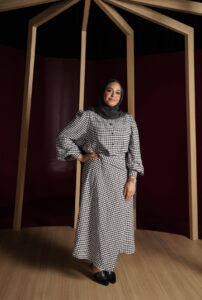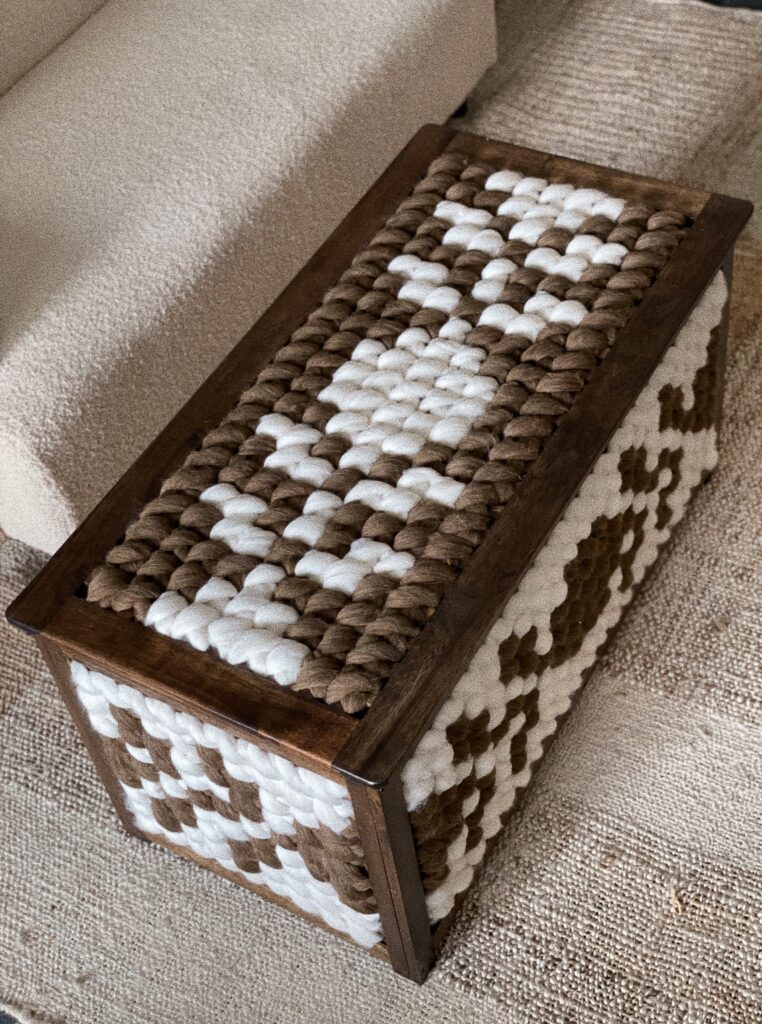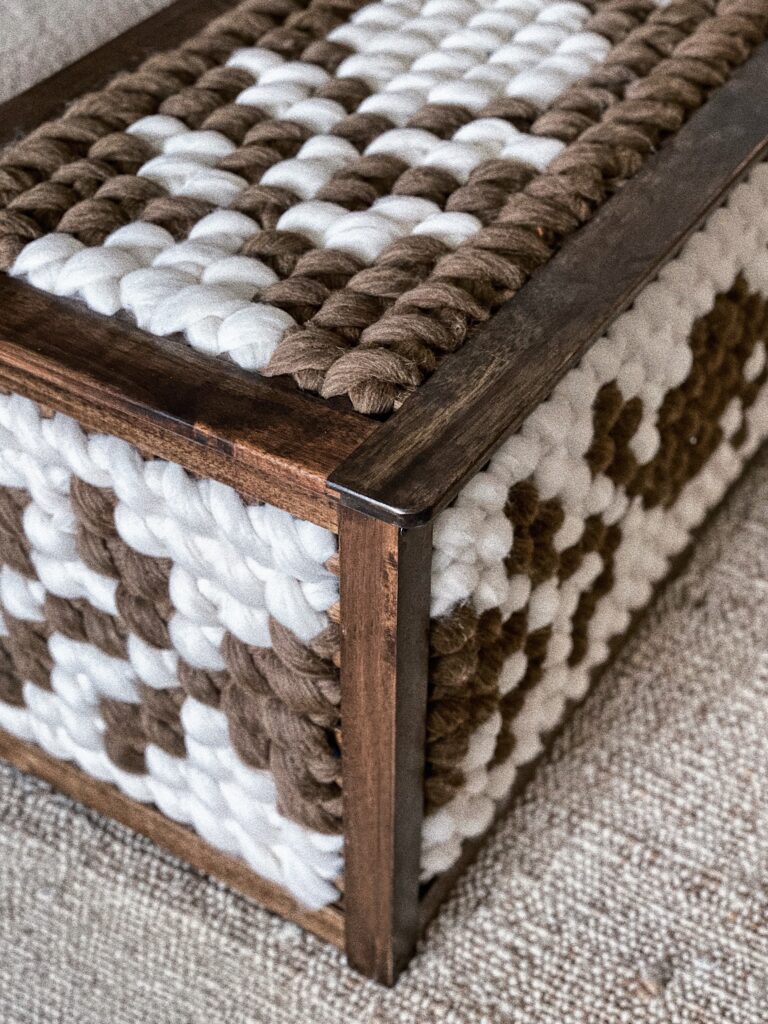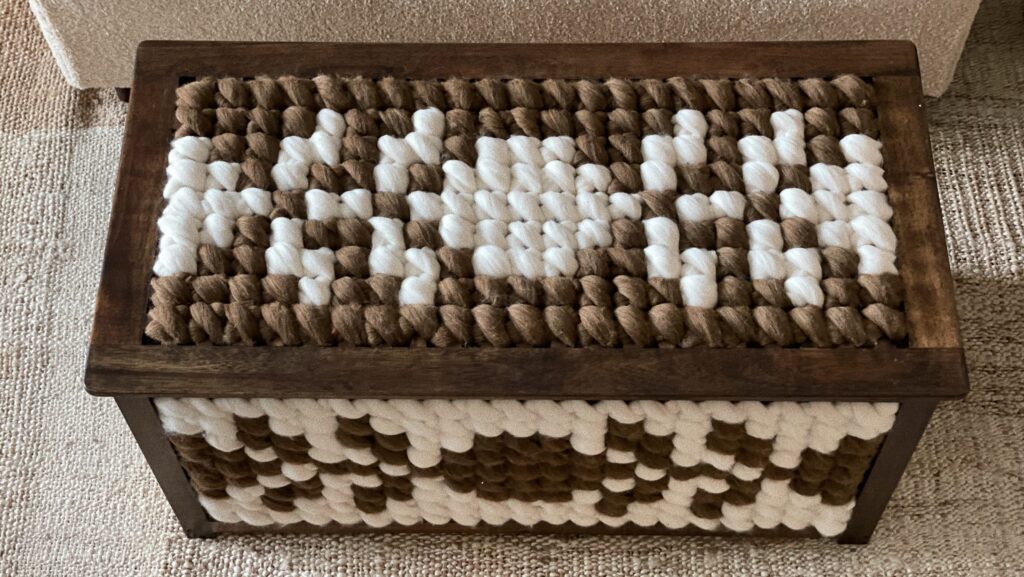
- Artist bio
Dalia Aly is an Egyptian architect and interdisciplinary designer based in Kuwait. Throughout her years of practicing architecture, gallery curation, and residential design she noticed a mentality of waste and disregard to our environment and histories, and set out to create designs which honor the past and protect our futures. She is currently working alongside clients and businesses to up-cycle their existing pieces and adaptively redesign their spaces to be as conscious as possible.
She has had the opportunity to work with incredible global and local companies such as L’Occitane, Virgin Mobile, Volume Cafe, Upper Street, Beauty Zone, OneBase, and Safat Home to transform and up-cycle furniture and products for them across social media platforms.
- Artist statement
In the fabric of our daily lives, I recognize a rich history woven into the designs of everyday items. Every chair, table, fixture, and even architectural space, carries the imprint of a designer's inspiration and desire to create something beautiful, functional, and potentially iconic. Despite their familiarity, these objects weave narratives of rich histories and lost traditions, indigenous lifestyles and their colonization, and so much more. My work revolves around adaptive reuse, where I merge my creative vision with existing designs, sparking a dialogue between the old and the new. This process not only breathes new life into familiar items but also serves as a bridge connecting their past to our present, revealing hidden histories within the mundane. By reimagining moments captured in daily life, my designs transcend mere functionality, inviting viewers to explore the intertwined layers of history, culture, and personal evolution within each piece.
- Artwork/Product Description
Tatreez, or cross-stitching, is a form of artful resistance used by Palestinian women to express their resilience, their culture, and to share stories of their history and occupation. The watermelon is a form of artful resistance which came to be after the occupying government banned all public displays of the Palestinian flag and its colors, which prompted Palestinians to display watermelons – with their red, green, black, and white colors – as a symbol of resistance and national pride. This table blends the two forms of artful resistance, cross-stitching a watermelon motif on a perforated coffee table – turning artful resistance into a beautiful piece of furniture to be placed in our homes as a constant reminder of resilience and as a symbol of hope for a Free Palestine.



